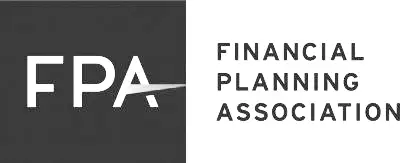Many people have come to us with old 401(k), 403(b), 457 and Simple IRA accounts from previous employers. Some even have multiple IRA accounts, often from past rollover situations.
It’s important to have qualified professionals help you decide on what to do with your inactive qualified plan and multiple IRA accounts. Whether you are changing jobs, entering retirement or simply wanting to consolidate your accounts, we can help you with each step of the rollover process.
Despite popular belief, it is not always best to rollover an old plan.
- Your portfolio is not able to be aligned to have your old account ‘out of the market’ during the rollover process. Most employer-sponsored plans do not allow funds to transfer in-kind to an IRA or similar retirement plan. This means your investments are sold, then sent out via check or federal funds wire to the new custodian. Your funds will be in ‘cash’ during the transition, potentially missing market opportunities.
- The investment options in your old account hold our preferred mutual funds. Our clients benefit from our in-house research and preferred mutual funds. Since our portfolio management is holistic, we take advantage of preferred fund offerings where available and in coordination with your overall strategy. These funds may also be low-cost share classes, which are often unavailable to many investors.
- You have the option to elect ‘net unrealized appreciation’ (NUA). This applies if you own company stock in your 401(k) or similar plan. Rolling over the account may forfeit this option, possibly triggering tax implications.
- Your plan offers additional tax savings opportunities. Certain custodians offer favorable investment options or have special tax provisions (the North Carolina employees’ Bailey provision, for example), meaning it could benefit you to leave your account at the current institution rather than combining the funds into another account. The NC Bailey provision on some NC 401(k) plans, would disappear when the account is moved.
Know when it may be time to move on:
- Consolidating your old retirement account may create a more diversified and efficient portfolio. Consolidation may also improve your access to funds for future cash flow needs and ease maneuverability for tax saving opportunities.
- Your portfolio is aligned to allow your old account to be ‘out of the market’ during the rollover process. Our portfolio review process aims to keep your investments in sync as much as possible with your investment strategy. For our investment management clients, part of our service is to request and complete paperwork while monitoring the rollover process.
- Your old plan is expensive. Not all plans offer low cost share classes, reducing cost savings opportunities on investing expenses. Some plans may also impose hefty administrative costs.
- Your old plan has limited investment options. We’ve seen plans that only contain a handful of investment choices that may not be ideal for our clients’ overall strategy. It is important to take your entire portfolio into consideration to see if your old plan is limiting your investment strategy.
Unsure if a rollover is right for you?
If you are interested in combining inactive qualified accounts, please feel free to contact us. Your advisor will research the best approach for your individual situation and determine if a rollover is the best choice for you. If it is, we’ll get the process started as soon as possible.
Not yet a client and unsure if a rollover is right for you? Contact us to schedule an appointment to review your financial picture and develop a plan that will help provide the answer.
Copyright: milinz / 123RF Stock Photo





